9 November
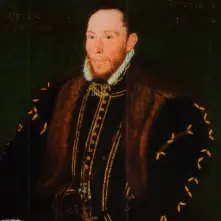
Thomas Percy, 7th Earl of Northumberland
1569 – The Northern Rebellion or Rising of the North. In November 1569, an uprising led by Charles Neville, 6th Earl of Westmorland and Thomas Percy, 7th Earl of Northumberland, sought to depose Elizabeth I, replace her with Mary, Queen of Scots (who would marry the Duke of Norfolk) and restore the Catholic faith as the faith of England. Although the rebels were successful in occupying Durham, where they took mass in the cathedral, Staindrop, Darlington, Richmond, Ripon and also Barnard Castle, they were finally forced to retreat north. Northumberland and Westmorland fled to Scotland. Their rebellion had been a failure.
1593 – Death of William Harris, historian and topographer, at St George's Chapel, Windsor. He was buried in the chapel. Harris's works included “Historicall Description of the Island of Britain” and “The Great English Chronology”.
1596 – Burial of George Peele, poet and playwright, at St James's Clerkenwell. His plays included “The Arraignment of Paris”, “Edward I”, “The Battle of Alcazar”, “The Old Wives' Tale” and “The Love of King David and fair Bethsabe”.
1623 – Death of William Camden, Richmond Herald, antiquary, historian, topographer and officer of arms, at Chislehurst in Kent. He was aged seventy-three. He was buried in the south aisle of Westminster Abbey. Camden is known for his “Britannia”, which was the first chorographical survey of Great Britain and Ireland, and his Annales Rerum Gestarum Angliae et Hiberniae Regnate Elizabetha, his history of Elizabeth I's reign
10 November
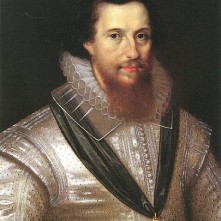
Robert Devereux
1483 – Birth of reformer, priest and theologian Martin Luther at Eisleben, Saxony. He was the son of Hans and Margarethe Luther (or Luder). Luther was a crucial figure in the European Reformation and is known for his “Ninety-Fives Theses” (or “Disputation of Martin Luther on the Power and Efficacy of Indulgences”) of 1517 and his teaching of justification by faith, i.e. that salvation came as a gift of God's mercy from faith in Jesus Christ and that it could not be earned by good works.
1536 – Death of Sir Henry Wyatt, politician, courtier, Privy Councillor and father of Sir Thomas Wyatt. He was buried at Milton in Kent. He acted as an executor of Henry VII's will, and his offices during Henry VIII's reign included Privy Councillor, Joint Captain of Norwich Castle, Knight-Banneret, Master of the Jewels and Treasurer of the King's Chamber.
1542 – Death of Sir Richard Pollard, law reporter, member of Parliament and King's Remembrancer of the Exchequer.
1556 – Death of Richard Chancellor, English explorer and navigator. Chancellor was drowned after saving the Russian ambassador, Osip Napeya, when their ship, The Edward Bonaventure, was wrecked in Pitsligo Bay, just off the Aberdeenshire coast. Chancellor is known as being the first foreigner to enter the White Sea and establish relations with Russia. He met Ivan the Terrible, the Russian Tsar, in the winter of 1553/4.
1565 - Birth of Robert Devereux, 2nd Earl of Essex, at Netherwood, Herefordshire. Devereux was the eldest son of Walter Devereux, 1st Earl of Essex, and Lettice Knollys, granddaughter of Mary Boleyn, and was a favourite of Elizabeth I.
1597 – Death of Peter Wentworth, member of Parliament, in the Tower of London. He had been imprisoned in 1593 after drafting the treatise “A Pithie Exhortation to her Majestie for Establishing her Successor to the Crowne” on the royal succession.
1610 – Death of Sir Thomas Wilford, member of Parliament and soldier, at his home in Hedding, Kent. He served as a soldier in Ireland, the Low Countries and France. His offices included Deputy Lieutenant of Kent and Governor of Camber Castle.
11 November
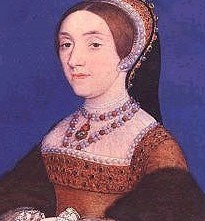
Catherine Howard
1491 – Birth of Martin Bucer, theologian and leading reformer, at Sélestat in Alsace. Bucer was the leading reformer of Strasbourg and was influenced by Martin Luther. His works included Defensio adversus axioma Catholicum, “Von der Waren Seelsorge” (“Concerning true pastoral care”), Gratulatio ad ecclesiam Anglicanam (“Congratulation to the English church”), “Bestendige Antworten (“Steadfast response”) and De ordinatione legitima (“On restoring lawful ordination”). While in exile in England in 1549, Bucer was commissioned to review the “Book of Common Prayer”.
1508 – Death of Sir Edward Brampton, soldier and merchant, at Lisbon in Portugal. He had been given a licence to settle in Portugal in 1487, and was known there as Duarte Brandão.
1534 - Philippe de Chabot, Seigneur De Brion and Admiral of France, landed on English soil. As the French ambassador to England, his visit was apparently intended to renew relations between England and France, so it was an important one. George Boleyn, Lord Rochford and brother of Queen Anne Boleyn, was chosen to meet the Admiral and escort him from Dover to London.
1541 – Catherine Howard, fifth wife of Henry VIII, was moved from Hampton Court Palace to Syon House where she was “examined touching Culpeper”, i.e. her alleged relationship with Thomas Culpeper, a member of her husband’s Privy Chamber.
1546 – Birth of Richard Madox, diarist and Church of England clergyman, in Shropshire. He is known for the diary he kept of Captain Edward Fenton's voyage to the Moluccas, while he was serving as Fenton's Chaplain and Secretary. Madox died during the voyage.
1563 – Burial of chronicler Henry Machyn (Machin) in London. He died after contracting the plague. Machyn is known for his chronicle “The Diary of Henry Machyn, Citizen and Merchant-Taylor of London, from A.D. 1550 to A.D. 1563”.
1593 – Death of Christopher Carleill, soldier and naval commander, in London. Carleill's naval and military career saw him serving in the Low Countries, France and Ireland. He also commanded the land force on Sir Francis Drake's expedition to Santo Domingo. Carleill was also known for his knowledge of mathematics, languages and his skill at poetry.
12 November
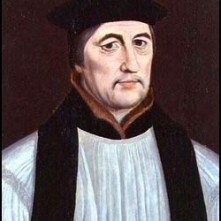
Stephen Gardiner
1537 – Jane Seymour’s body was taken by chariot from Hampton Court Palace to Windsor Castle. The chariot was followed by a procession led by the Duke of Suffolk and the Marquis of Dorset. Jane’s stepdaughter, the Lady Mary, acted as chief mourner in the procession and the service, which was held at St George’s Chapel on arrival at Windsor. A solemn watch was kept that night, and then Jane was buried on the morning of the 13th November.
1554 – The opening of Mary I’s third Parliament. At this Parliament, a bill was passed allowing the exiled Cardinal Reginald Pole to return to England as papal legate.
1555 – Mary I's Parliament re-established Catholicism in England.
1555 - Stephen Gardiner, Bishop of Winchester and Mary I’s Lord Chancellor, died. Gardiner crowned Mary I Queen of England at her coronation at Westminster Abbey on the 1st October 1553, and helped Mary to restore Catholicism and overturn the annulment of her parents’ marriage, making her legitimate. He was also instrumental in the marriage negotiations between Mary and Philip II of Spain, and married the couple at Winchester Cathedral on the 25th July 1554. He was laid to rest at Winchester Cathedral in what is now known as the Bishop Gardiner Chantry Chapel.
1576 – Death of Sir Edward Saunders, judge. He was buried at Weston under Wetherley, Warwickshire. Saunders' offices included Serjeant-at-Law, Recorder of Coventry, Chief Justice of the King's Bench and Chief Baron of the Exchequer.
1586 – A delegation of forty MPs and twenty peers presented Elizabeth I with a petition demanding that “a just sentence might be followed by as just an execution” in the case of Mary, Queen of Scots.
1595 – Death of Sir John Hawkins, merchant, shipbuilder, navigator, explorer, slave trader and naval commander, at Puerto Rico on a voyage, with Sir Francis Drake, which aimed to capture Panama. He was buried at sea. Hawkins is known for being the chief architect of Elizabeth I's navy, and he was knighted for gallantry after serving as Vice-Admiral during the Spanish Armada.
13 November
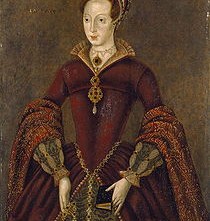
Woman thought to be Lady Jane Grey
1537 – Burial of Jane Seymour, Henry VIII's third wife, at St George's Chapel, Windsor Castle. Henry VIII's daughter, Mary, acted as chief mourner.
1553 - Lady Jane Grey, her husband Guildford Dudley, his brothers Ambrose and Henry, and Archbishop Thomas Cranmer were tried for treason at a public trial at London’s Guildhall. They were all found guilty as charged, with the men being sentenced to being hanged, drawn and quartered, and Jane to be burned alive, or beheaded.
1601 – Burial of Lady Mary Ramsey (née Dale), famous philanthropist, at Christ Church in London.
1612 – Death of Sir George Carew, administrator, member of Parliament and diplomat, from typhus at his home in Tothill Street, Westminster, London. He was buried at St Margaret's Church, Westminster. Carew's served as secretary to Lord Chancellor Hatton and served Elizabeth I and James I as an ambassador.
14 November
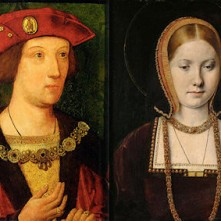
Arthur Tudor and Catherine of Aragon
1501 - Catherine of Aragon married Arthur, Prince of Wales at St Paul’s Cathedral.
1531 – Birth of Richard Topcliffe, member of Parliament, priest-hunter, interrogator and torturer, in Lincolnshire. During the reign of Elizabeth I, Topcliffe was issued with warrants allowing him to use torture when examining imprisoned Catholic recusants and priests. His famous victims included Robert Southwell, John Gerard and Henry Garnet.
1532 - On this day in 1532, according to the chronicler Edward Hall, Henry VIII and Anne Boleyn secretly married: “The kyng, after his returne [from Calais] maried priuily[privily] the lady Anne Bulleyn on sainet Erkenwaldes daie, whiche mariage was kept so secrete, that very fewe knewe it, til she was greate with child, at Easter after.”
1539 – Hanging of Hugh Cook (Faringdon), Abbot of Reading, for treason, for upholding papal supremacy. He was born Hugh Cook, but took the name Faringdon when he took Benedictine orders.
1541 – An inventory was taken “of the goods and chattels, lands and fees of Thos. Culpeper, the younger”, the alleged lover of Queen Catherine Howard.
1559 – Death of Thomas Brydges, landowner, member of Parliament and administrator. He was buried at Chadlington in Oxfordshire. Brydges had been present at the execution of Lady Jane Grey while serving as Deputy Lieutenant of the Tower of London.
1581 – Death of Richard Bristow, Roman Catholic priest and scholar, while in prison for his faith. He died of consumption. Bristow is known for being one of the men responsible for the translation of the Douay-Rheims Bible.
15 November
1527 – Death of Katherine, Countess of Devon (also known as Katherine of York) at Tiverton Castle, She was aged forty-nine. She was buried at St Peter's Church, Tiverton, in funeral ceremonies on 2nd and 3rd December. Katherine had taken a vow of chastity after the death of her husband William Courtenay, Earl of Devon, in 1511. Katherine was the sixth daughter and ninth child of King Edward IV and Elizabeth Woodville. Her sister, Elizabeth of York, had married Henry VII, so Katherine was aunt to Henry VIII.
1555 – Death of Robert Holgate, former Bishop of Llandaff and then Archbishop of York, in London. He was buried at St Sepulchre. Holgate was imprisoned for a time during the reign of Mary I for being married, but was released when he renounced his marriage in his “Apology”.
1592 – Burial of Sir Thomas Cokayne, soldier, huntsman and author of “A Short Treatise of Hunting” (1591), at Ashbourne church in Derbyshire. Cokayne attended Mary, Queen of Scots on her journey to Fotheringhay in 1587, and helped found Ashbourne Grammar School.
1597 – Death of Robert Bowes, member of Parliament and Elizabeth I's English Ambassador in Scotland, at Berwick. He was buried at Berwick on the 16th November.

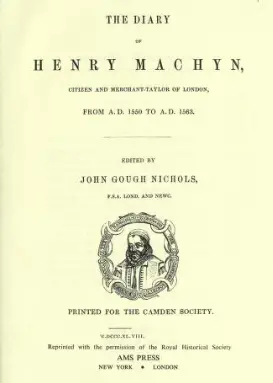
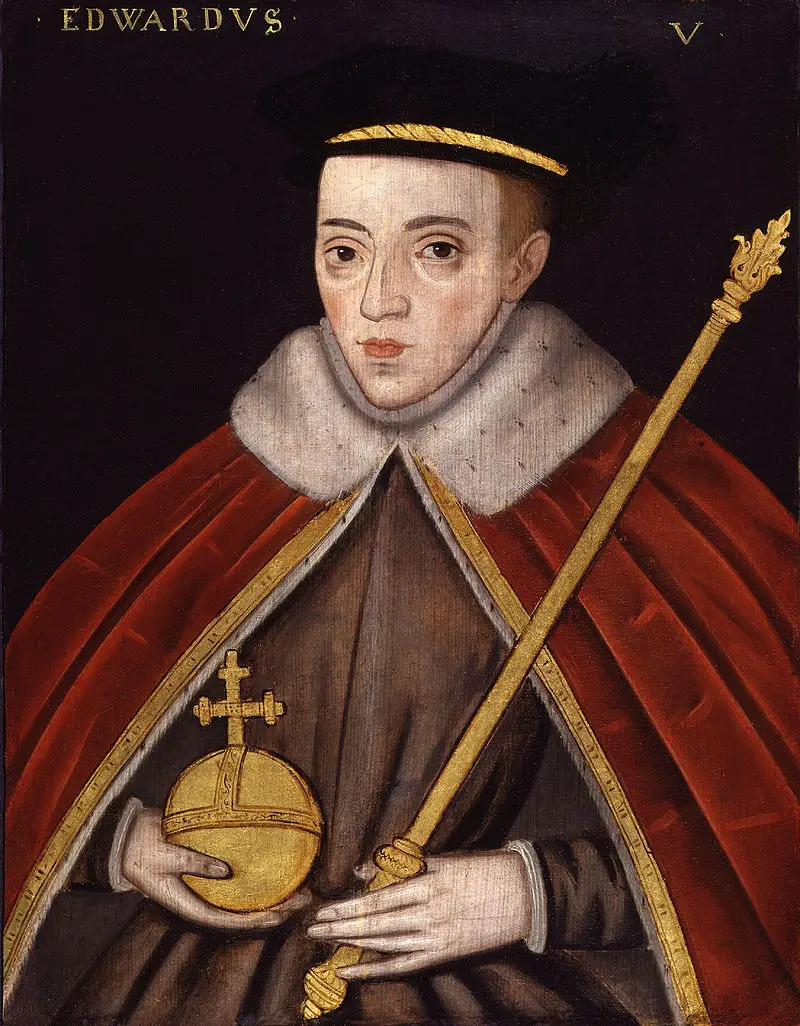
Leave a Reply